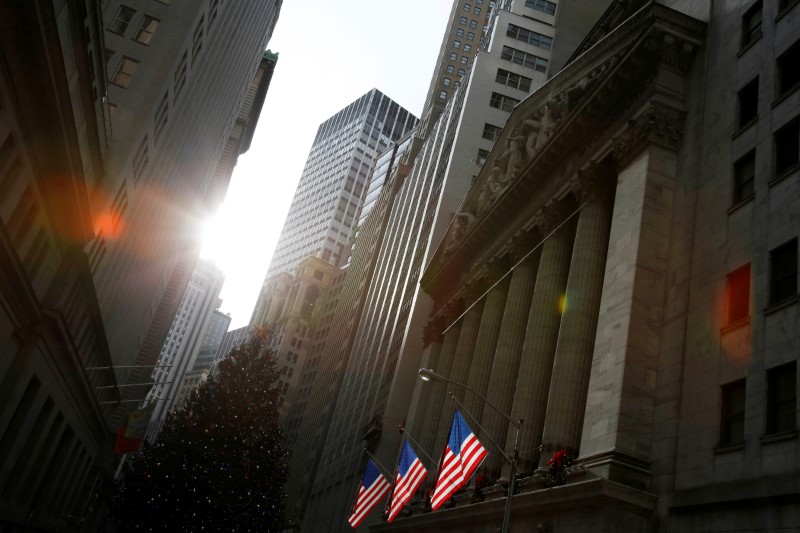 © Reuters. U.S. flags hang at the New York Stock Exchange in New York City
© Reuters. U.S. flags hang at the New York Stock Exchange in New York CityBy Richard Leong
NEW YORK (Reuters) – U.S. government shutdowns, which hurt federal workers who go on furlough and taxpayers in need of federal services, have not caused major disruptions to financial markets in the past.
Investors expect nothing different from the shutdown that could begin on Saturday.
“It’s more a political event than an economic one,” said Alessio de Longis, portfolio manager with OpperheimerFunds’ global multi-asset group in New York. “We have been in this situation before.”
On Friday, Washington lawmakers and U.S. President Donald Trump were pushing against a midnight deadline to reach an agreement to keep the government open in the effort to avert a shutdown that last occurred more than four years ago.
Wall Street has brushed off the increasing likelihood of a shutdown. The three major U.S. indexes () () () rose on Friday, marking their third straight week of gains.
The yield on benchmark 10-year Treasury notes () reached a three-year peak at 2.659 percent, meanwhile.
The dollar held steady against a basket of currencies () () but still ended lower for a fifth straight week, the longest such streak since April-May 2015.
In the aftermath of the last shutdown in October 2013, which lasted for 16 days, the S&P 500 posted a modest 3 percent gain. Gold, the dollar and the 10-year yield barely changed.
Even if a shutdown begins this weekend, most analysts and investors suspect it will be short lived.
“It’s still seen as a short-term event,” said Vassili Serebriakov, currency strategist at Credit Agricole (PA:) in New York.
Fusion Media or anyone involved with Fusion Media will not accept any liability for loss or damage as a result of reliance on the information including data, quotes, charts and buy/sell signals contained within this website. Please be fully informed regarding the risks and costs associated with trading the financial markets, it is one of the riskiest investment forms possible.
Source: Investing.com




























